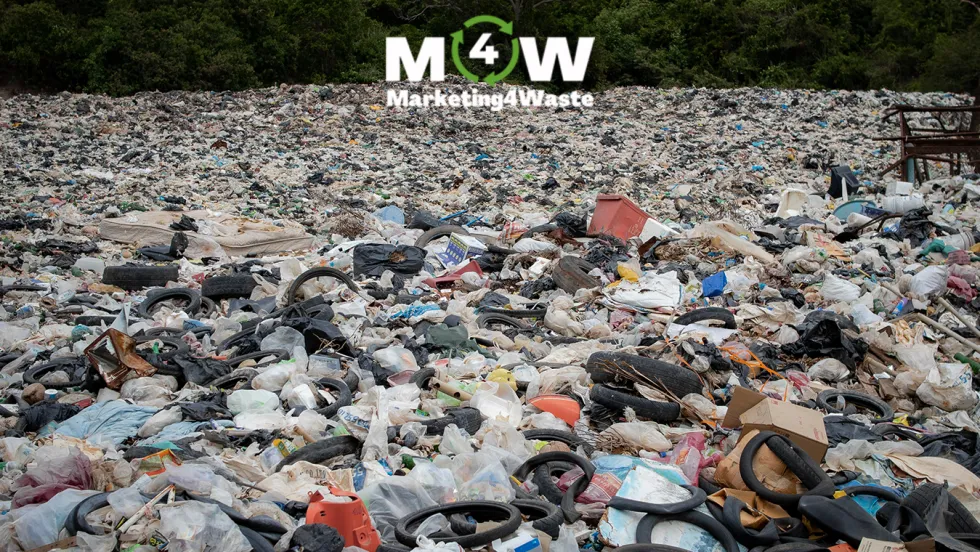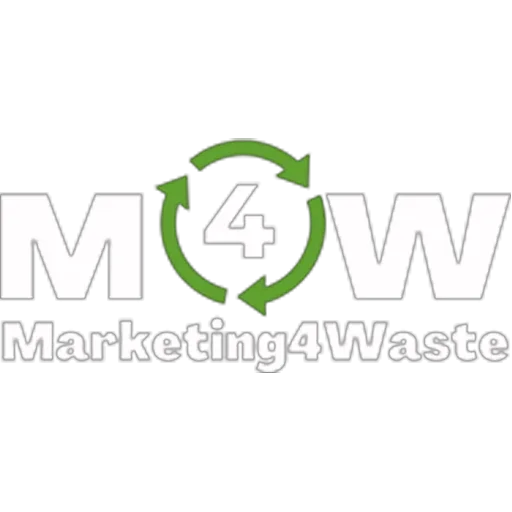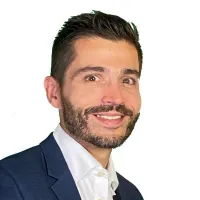Increase the Revenues of Your Waste Company With the Tips Shared in Our Blog Articles

Waste War! Is your company ready for the environmental challenge or not?
Discover how to make your company immune to the various changes in environmental regulations that will shape the market for the next 20 years.
“War is nothing but the continuation of policy with other means” that’s how Von Clausewitz defined war in 1812 in his book On War.
I know my title left you speechless!
Waste war! what does that even mean?
Believe me when I tell you that you are already living in the waste war.
You just haven’t realized it.
In fact, there is not a day that the various media, newspapers, magazines, scientific and journals, do not talk about how to attack and solve the problem of waste.
It is a real war on the problem that is afflicting our planet.
A war fought with weapons of different natures.
On one hand, governments and environmental authorities are launching new regulations, while on the other hand, operators in the sector are implementing the regulations and trying to put everything into practice as soon as possible.
It is increasingly a race against time.
Or rather it is perceived as such.
A race to save the future planet without considering what strategies must be implemented immediately today.
But I don’t want to be controversial.
In fact, in this newsletter I want to guide you in ensuring that your waste management business becomes immune to changes in regulations and the introduction of new standards.
That is because the most important point is that your waste management business is at the mercy of what is established at state, national and/or international level in most cases.
In short, the business risk is yours but decisions about its life are made by others.
And this honestly exposes you to risks that need to be mitigated.
Risks that you have partially mitigated, but what about the part that you are still exposed to?
Believe me when I tell you that I know many businesses that, because of a sudden change in a single law, have had to shut down.
The work of a lifetime, the sacrifices of entire families went up in smoke and all because the politician on duty or the passing legislator decided that this was how it should be.
Fortunately, these are borderline situations but, given the current times, they are not so borderline.
And if you think that in the world of waste this does not happen, forgive me but you’re wrong. More than you think.
The banning of certain products has put an end to entire chains of waste management that originated from that product.
Just think of the end of copper-based coatings.
This was a very strong and widespread market up until towards the end of the90s, when the end of copper-based coatings not only shut down the production chain, but also put the waste collection and treatment chain out of business.
And there are more examples. I would add that unfortunately there are also many companies that have closed their doors because of these sudden changes.
Changes in regulations that in the vast majority of cases take place without consulting those directly involved in the operations.
In short, a real chaotic scenario.
Believe me when I tell you that there is a way to be protect yourself.
Or rather to make your company immune.
It’s not about magic.
On the contrary, it’s a constant reading of the market.
Not only of the waste market but also of the product market that originates the waste you collect.
I know you’re thinking, “And how do I read the market?“
Reading the market means understanding its directions and glimpsing its opportunities.
Operation that, if you remember, you did at the time you decided to enter the world of waste management.
Let me tell you that today it is much more necessary than yesterday.
At the same time, today this operation has become more complex, to the point that due to international scenarios it is essential that your company has a team focused on observing what is happening on the production and raw materials side of the business.
I know this sounds like something obvious but believe me it is not.
Examples are the shortages we had in the year 2021, those related to raw material shortages. These shortages were based on local social events and, only in some cases, on international political issues. Events that belong to the human race since, just to give you an example, between 343 B.C. and 341 B.C. the Romans to faced grain shortage that gave life to the first Samnite war (Deditio Capua).
In short, nothing new.
Yet so many companies were displaced by what was happening.
Let me add that we were probably under the illusion that these things could no longer happen because globalization has broken down so many limits.
But they do happen.
Indeed, given the expected growth of the world’s population, let me tell you that we are only at the beginning. And I am not a pessimist, but I simply read the market.
Unless you start playing your own game.
Not a small operation.
What do I mean?
Well you won’t believe it but the only way to immunize yourself from rule and regulation changes is to make sure that you have an active part in the process of implementing the regulations.
Yes, because as I told you if you read the market you know that, for example, the future of batteries is made of solid state lithium batteries.
I’m talking about batteries without liquids that facilitate the migration of electrons from the anode to the cathode.
Starting from this example, as a waste management company specialized in battery collection your approach will be based on these 3 points:
– gathering information on the manufacturer’s source of supply;
– gathering information on the production technique
– gathering information on the sales and life dynamics of the product.
This means that you’ll need to first start interacting with the purchasing department of the various battery manufacturers to understand how they evaluate the raw material suppliers for the production of their batteries.
Maybe they only buy lithium that comes from a certain region of the world because it meets characteristics in line with a standard they’ve set as a manufacturer.
Or maybe there’s a reference standard they can use.
Once this initial collection of information is in progress, you will already know the characteristics of the raw materials they are buying and therefore, you’ll understand what improvements you need to make to your treatment plant in order to have secondary raw materials in line with the required standards.
At this point you move on to gathering information from the technical department of the different manufacturers to find out how they are made and what other chemicals are involved in their production process.
For example, the amount of cobalt present is different from other types of batteries produced.
You will need this information because if you know the production process you’ll know what you’ll find in the waste when it enters your waste management plant.
Moreover, you will be able to foresee the necessary plant characteristics useful to structure the regeneration process or the separation of secondary raw materials so as to obtain products that comply with the parameters required by the purchasing office.
But this is not enough.
It will be important to know with which commercial formula these new batteries will be put on the market and what will be their average life.
So you’ll need to interface with the manufacturer’s sales and marketing department to gather information on how the product is being sold, what the maintenance process entails and what the average life span will be.
I know you’re wondering, “Now that I have all this information, what am I going to do with it?”
Well now is the time to line them up to build your strategy.
In fact with the entire collection process you know:
– what characteristics secondary raw materials must have if you plan to sell them;
– what characteristics your plant must have to be able to produce secondary raw materials and what these raw materials will be;
– by when you’ll have to be operational so that, from the moment you put it on the market, you can receive and process that waste.
But we’re only at the beginning.
Because this does not immunize you from what could result from an environmental regulation.
So, together with the manufacturer, you will have to create a pilot process for battery remanufacturing or for the production of secondary raw materials from the batteries.
It will be a process with no immediate gain, let’s be clear, but it will give you and the manufacturer insight into the risks involved.
In the creation of the process you’ll involve a company that is an expert in environmental aspects to validate the process that, together with the manufacturer, you have set.
This will work on two directions:
– 1° you’ll have support from a third party company whose role is to prevent environmental pollution;
– 2° the battery manufacturer will automatically have identified a partner to whom he can entrust the regeneration process or, in any case, the supply of secondary raw materials.
But this is not the end of the story. Because this obviously will allow you to move from a mode in which you suffer the market to a mode in which you make the market.
In fact, with this model you’ll be able to structure a marketing plan that provides incentives to entrust solid state batteries to your management center and that rewards those who give them to you.
That is because your business model is not based on waste collection but on the sale of secondary raw materials.
Secondary raw materials that result from the agreement you made with the manufacturer are, practically, already sold as that battery enters your facility.
That’s the way to immunity.
Let me add that it is also the only way to give continuity of production, avoiding that because of a geopolitical change all production must be suspended.
Here again, as I have reiterated in many other issues of this newsletter, it is essential that you first be a promoter of waste separation even if it is hazardous waste.
Waste segregation allows you to set up virtuous circles that give you control not only over the sale of secondary raw materials but also over the management of regulations concerning them.
For this reason I conclude by giving you advice: act and not react!
Book a Discovery Call by clicking here
Be the change
Sam,


© 2025 Marketing4waste - All Rights Reserved,
Marketing4Waste is a brand of MiM MarketingInterimManagers LLC
+1 801 804 5730

